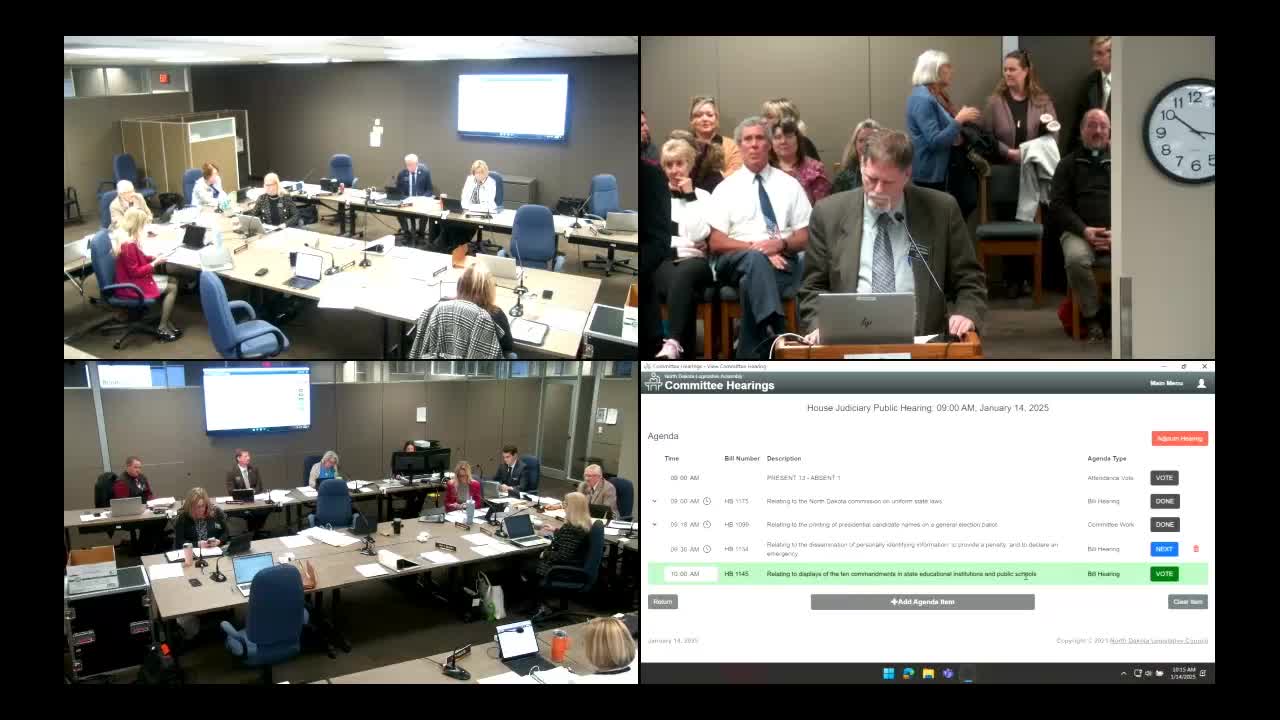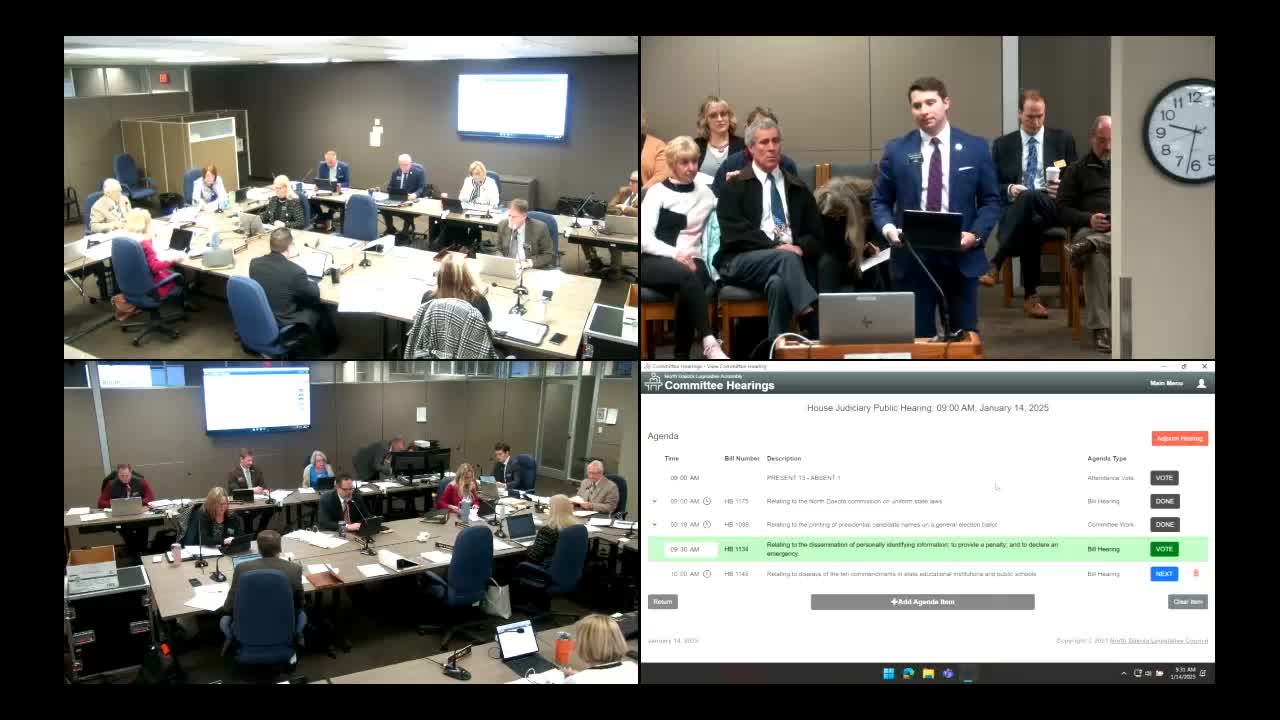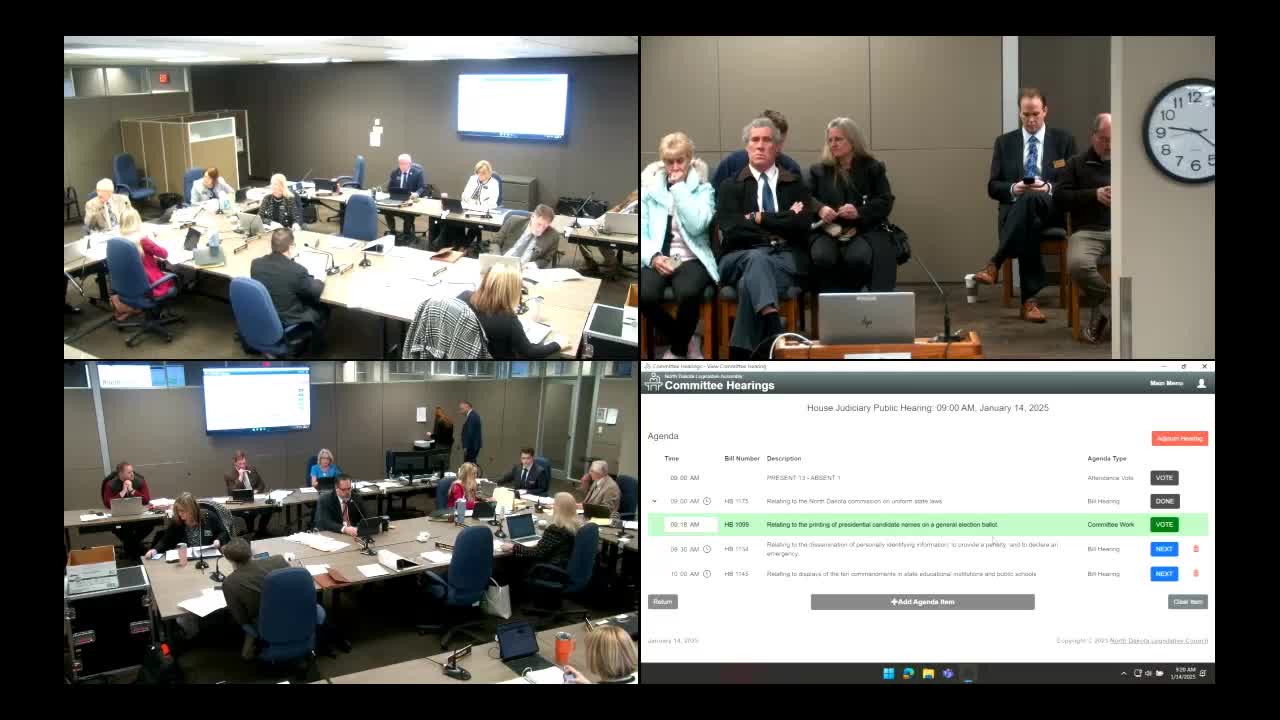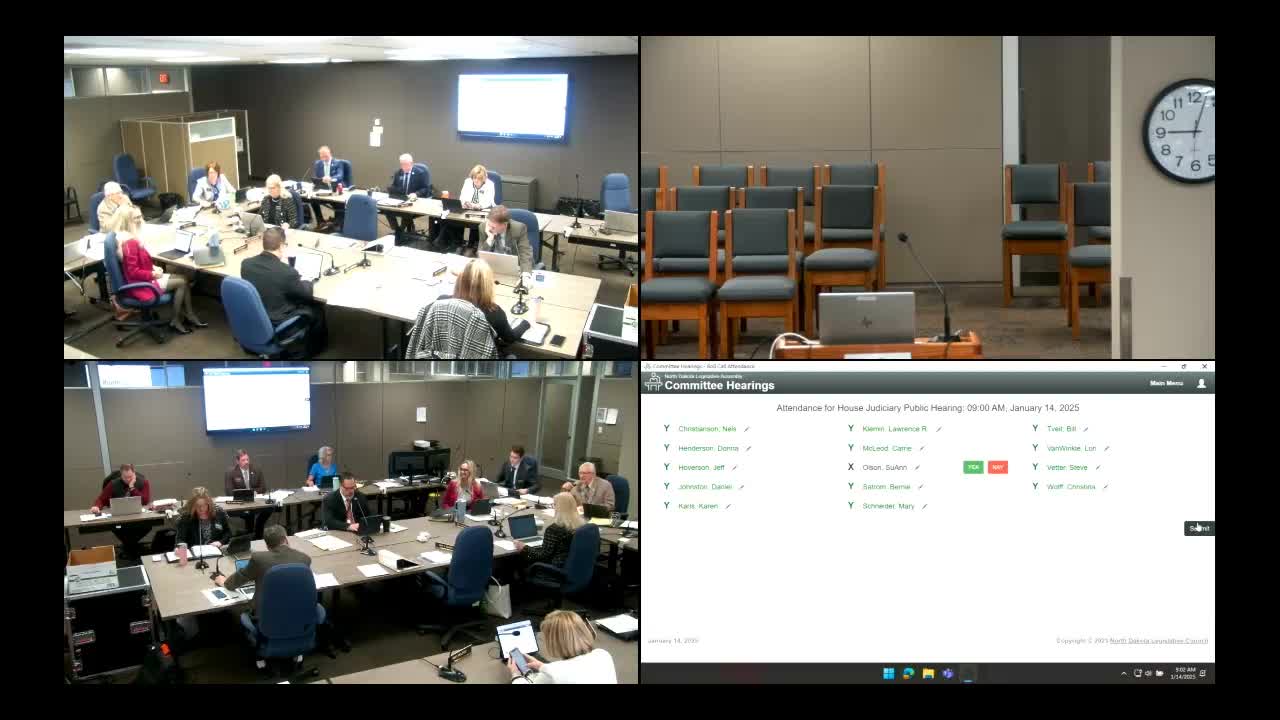Article not found
This article is no longer available. But don't worry—we've gathered other articles that discuss the same topic.

Long hearing on bill to require 10 Commandments in classrooms pits history-and-tradition claims against coercion and litigation warnings

Committee hears doxxing bill; victims, industry and prosecutors flag definitions, jurisdiction and penalties

Panel approves amendment to print presidential candidates’ full names on ballots; bill recommended due pass

